Four years ago,
few voters outside Illinois knew who Barack Obama was,
let alone imagined that a virtual newcomer like him could be
poised to become the nation's first
African-American president. Yet, today, Obama's
historic and swift ascent toward the ultimate political
prize now raises interest in another unprecedented
scenario: When -- and under what circumstances --
might an openly gay person move into the Oval Office?
Roberta
Achtenberg, former assistant secretary of Housing and Urban
Development, who in 1993 became the first openly gay person
to be confirmed by the U.S. Senate for a cabinet-level
position, has never truly entertained the possibility
of a gay president -- until now. And the fact that
"I'm allowing myself to do so tells me that
something extraordinary had happened in the past few
years," she says.
It's taken
the perfect combination of trailblazing and unimaginably
fertile political and cultural circumstances to help get
Obama to where he is today. Certainly L. Douglas
Wilder of Virginia, who 18 years ago became the
country's first elected African-American governor,
and public officials like former U.S. senator Carol
Moseley Braun and secretaries of state Colin Powell
and Condoleezza Rice helped lay the path. That many
people wanted Powell to run for the nation's highest
office in 2000 also helped set the stage for an Obama
presidency.
"You've got to demonstrate that you're
a part of society and can work and perform just as
well as anybody else," says Marisa Richmond, a
historian and the first openly transgender
African-American delegate to the Democratic National
Convention. "[Obama] has made his advances based on
the successes of others who've come before
him."
There have
already been plenty of gay political trailblazers. Since
1974, when Elaine Noble became the first openly gay
candidate elected to public office (the Massachusetts
house of representatives), the number of out
politicians has steadily increased. According to the Gay and
Lesbian Victory Fund, 49 openly gay elected officials
held office when the organization launched in May
1991; today, the group counts nearly 500. But there
has yet to be a gay equivalent to Wilder, Braun, Powell, or
Rice -- an openly gay candidate who has won or been
appointed to one of those statewide or national
positions that are the usual launching pads for the
White House. That's one of several hurdles.
Another
significant obstacle is the law. It's not illegal for
a gay man or woman to be president. But can you
envision a commander in chief who couldn't
serve openly in the military? Or a president whose marriage
isn't recognized by the federal government? So
"don't ask, don't tell"
and the Defense of Marriage Act will have to be overturned
first. And count on needing passage of the Employment
Non-Discrimination Act too. After all, who would want
a president who, while at work in the White House,
couldn't be guaranteed freedom from discrimination
based on sexual orientation?
Considering these
difficulties, what are the chances of a leading gay
presidential contender by 2016? Not very good, says Patrick
Egan, assistant professor of politics at New York
University. He points to a December Gallup poll in
which only 56% of respondents said they would vote for
a well-qualified candidate who happens to identify as
"homosexual." That was only 10 points higher
than the number of respondents who said they would
support that perennial nonstarter in U.S. politics,
the atheist. "Those numbers look like the numbers for
electing a black president did 40 or 50 years
ago," Egan says.
Yet as the Obama
phenomenon attests, even the far-fetched can happen,
particularly when a whole generation of voters turns a
candidacy into a bona fide movement.
"I think
the youth vote will be the biggest factor," says gay
superdelegate Jason Rae, who at 21 is the youngest person
ever elected to the Democratic National Committee. He
estimates that it will be about 30 years -- when an
older generation of voters will be replaced by younger
ones -- before a gay or lesbian presidential candidate will
be viable.
That any
potential nominee ought to be brilliant and charismatic goes
without saying. But when breaking the bias barrier, minority
candidates must also reflect their minority status in
a "nonthreatening" way.
"For good
or for ill, I think the Ellen phenomenon has made the
domesticated lesbian more palatable," says Lisa
Moore, an associate professor of English and
women's and gender studies at the University of
Texas at Austin. "I think it would be a partnered
lesbian, probably someone with children."
In fact, most of
those asked predicted that the likeliest candidate would
be a woman. "I think that women have more
successfully bridged the 'yuck gap' with
the public than men," says Bob Witeck, CEO and
cofounder of the Washington, D.C.-based
marketing and PR firm Witeck-Combs Communications.
Still, there are
some who discount the likelihood of a lesbian,
particularly in the wake of sexism they say was on display
in the recent primary season. "A lesbian
candidate would have a double whammy," says
Holly Hughes, associate professor of art and theater at the
University of Michigan. She envisions the ideal
candidate as a man who benefited from the gay rights
struggle but did not forge his identity in it, in the
manner that Obama, born in 1961, connects with the civil
rights movement: "It would have to be someone
who, in that particular elocution,
'happened' to be gay."
Obama's
success suggests that the optimal scenario for a gay
candidate might ultimately require a convergence of
factors that the candidate has no control over. For
instance, would Obama's image of change be so
appealing on the tail end of eight years of national
prosperity and peace? "I'm not sure if
[Obama] shows us a new way of becoming president so
much as he is an exceptional personality, with an
exceptional biography, in an exceptional time,"
says Jonathan Rauch, a guest scholar at the Brookings
Institution. In other words, the perfect candidate with
the perfect biography might be out there already --
it's just a matter of finding the perfect time.
"By the time we're ready to consider a gay
president," Rauch explains, "gay rights will
have to have almost ceased being controversial in
America."
Come to think of
it, that does sound like the perfect time.
HAIL TO THE CHIEF Who needs primaries? We conducted an informal
poll of the Gay, Lesbian, and Straight Education
Network, the Gay and Lesbian Victory Fund, and
political insiders to bring you this list of likely, and
surprising, LGBT contenders for the White House -- for
the next 24 years.
The Most Likely
2016David Cicilline, 47, mayor of Providence, R.I.,
and president of the National Conference of Democratic
Mayors
Barney Frank, 68, U.S. representative from
Massachusetts
Anthony D. Romero, 43, executive director of
the American Civil Liberties Union
Elizabeth Birch, 52, consultant; former Human
Rights Campaign executive director
2024Tammy Baldwin, 46, U.S. representative from
Wisconsin
Hilary Rosen, 49, political director of The
Huffington Post
Kate Brown, 48, Oregon state senator
Matt McCoy, 42, Iowa state senator
Christine Quinn, 42, speaker of the New York
City Council
2032Guy Padgett, 31, former mayor of Casper, Wyo.,
and current city council member
Rachel
Maddow, 35, MSNBC political analyst and Air
America Radio host
Jamie Pedersen, 39, Washington State
representative
Jason Rae, 21, DNC superdelegate from Wisconsin
Elizabeth Duthinh, 17, freshman at Brown
University; helped lobby to pass Maryland's
safe-schools law
Michael Tuso, 19, University of North Carolina
at Greensboro freshman; first openly gay student body
president in the UNC system
The surprising
2016David Geffen, 65, media mogul
David C. Bohnett, 52, technology entrepreneur
Tim Gill, 54, software entrepreneur and gay
rights activist
Suze Orman, 57, financial adviser
2024Greg Louganis, 48, Olympic gold medal diver and
motivational speaker
Michael Stipe, 48, lead vocalist of R.E.M. and
activist
2032Patrick Guerriero, 40, executive director of
Gill Action Fund; former head of Log Cabin Republicans
Dan Savage, 43, syndicated sex columnist





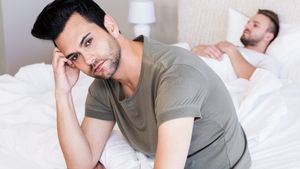

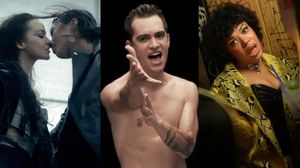
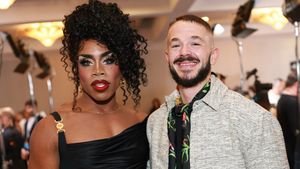

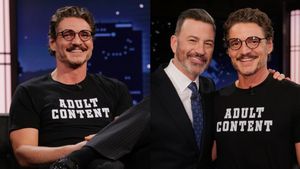

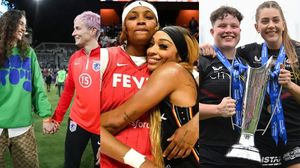
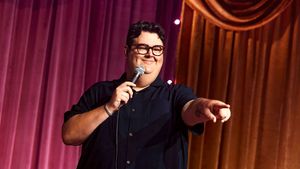


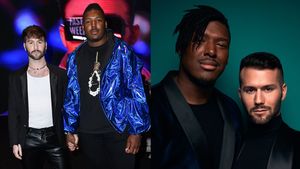

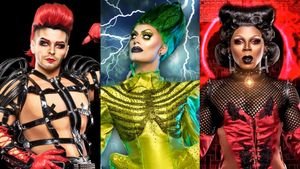
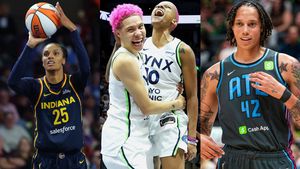
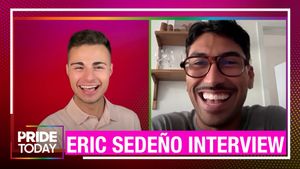
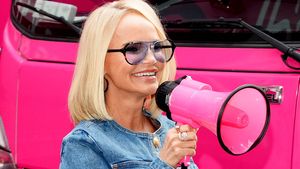









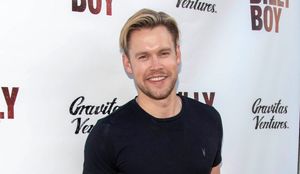



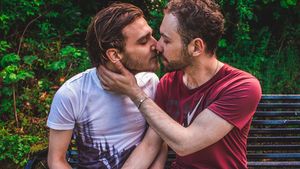

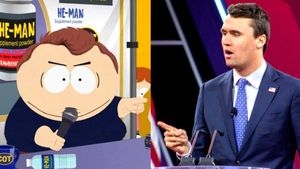


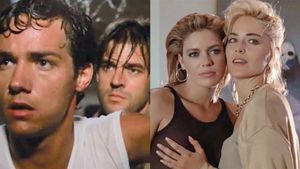


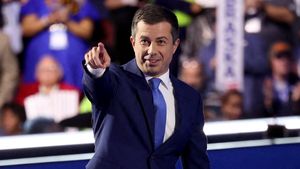

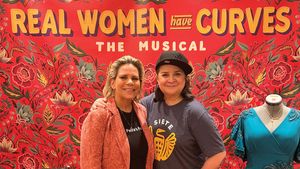
























Charlie Kirk DID say stoning gay people was the 'perfect law' — and these other heinous quotes